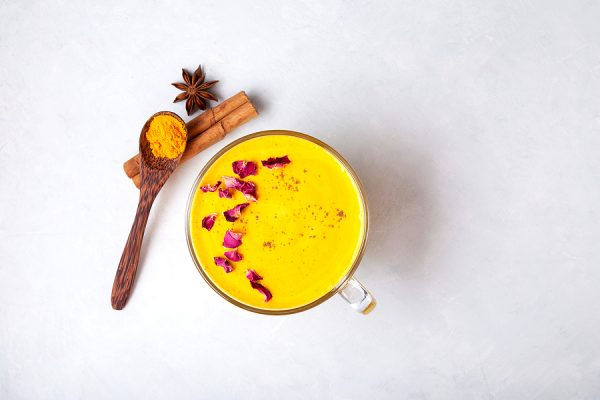By David Blyweiss, M.D., Advanced Natural Wellness
Back when I was in medical school decades ago, I was taught to treat the patient, not the symptoms…that if you really listened to them tell their story, it would tell you what their medical problem was.
This is a message I took to heart. And as medicine started pivoting towards fitting patients into diagnostic codes for insurance payments and general prescriptionism and less about patient centered care, I became part of the very first group of U.S. physicians ever trained in functional medicine.
That means my focus and treatment plan is personalized to each patient based on their comprehensive history, physical exam, specific concerns, lifestyle, genetics and environmental variables. I give my patients ALL their options… not just drugs and surgery.
As a result, I often recommend alternative medical treatments, either alone or in combination with more conventional options. And oftentimes, my recommendations include increasing the use of spices, herbs and other nutrients to help prevent disease or improve symptoms.
So if you have high blood pressure, I might recommend eating two cloves of garlic a day or, if you don’t like garlic, supplementing with aged garlic extract. That’s because the effects of garlic are similar to those of the beta blocker atenolol, without the side effects. Additionally, garlic helps reduce plaque in your arteries and improve circulation.
If you’re diabetic, I would ask you to put a little cinnamon in your coffee, tea or yogurt every day to help lower blood sugar.
These are easy little tricks that can go a long way toward your good health.
But one thing to keep in mind is that both high blood pressure and diabetes have something in common, as do most of today’s chronic health conditions.
A World of Inflammation
Chronic inflammation contributes to nearly all of today’s common health conditions. Diabetes, heart disease, stroke, arthritis, non-alcoholic fatty liver, kidney disease, cancer, inflammatory bowel disease, neurodegeneration and so much more!
That’s why one of my favorite spices is turmeric. It’s the main spice used in curry and contains a powerful antioxidant called curcumin that has a long history of use in both Ayurvedic and traditional medicine.
And while turmeric is good for so many different ailments, it’s an absolute must when it comes to fighting inflammation.
In diabetics, the curcumin found in curry appears to improve overall function of beta cells, which is necessary for proper insulin function. Studies also show it improves insulin resistance, blood sugar levels and inflammatory markers.
In people with arthritis, gout or other joint pain, the curcumin in turmeric shuts down inflammation by blocking enzymes that produce pain.
It improves endothelial function and arterial health. And it shows great promise in the fight against cancer
It may even help protect against Alzheimer’s by reducing the inflammation that promotes amyloid plaques. It also reduces oxidation and clears out heavy metals like cadmium and lead – all of which contribute to Alzheimer’s and dementia.
Now here’s the thing. Everyone is susceptible to slow-building, long-term inflammation that will eventually manifest as pain and disease. So turmeric is something all of us could use more of.
You can use it to make a curry sauce for vegetables, seafood and meats. Or you can simply use it as a seasoning, much like you would use salt or pepper. (Always use turmeric with black pepper to increase it’s bioavailability.)
Sprinkle it over your vegetables, add it to soups and stews, put it on your eggs or blend it in a smoothie. You can even make a turmeric latte by mixing it in almond or coconut milk with some cinnamon, ginger and black pepper. (Look up “Turmeric Gold Latte” online for a variety of recipes.)
If you find it more convenient, you can also take a turmeric or curcumin supplement. It should contain 95% curcuminoids from curcuma longa and include black pepper extract to increase absorption.
Dynamic Duo for Stress Management
One of the most common contributors to inflammation is stress. In fact, it’s believed that 75% to 90% of human disease is linked to stress and stress-related inflammation.
Rhodiola and ashwagandha are two adaptogenic herbs that work synergistically to help the body naturally adapt to stress and anxiety that can leave you feeling exhausted and washed out.
Rhodiola can start reliving symptoms of fatigue – even burnout – in about a week. Stress levels, fatigue and irritability all start to decline, and continue to do so over time. At the same time, these negative feelings are replaced with greater levels of alert calmness and a better mood.
It even works in patients with chronic fatigue syndrome. Taking rhodiola daily reduces fatigue, increases mental performance, improves ability to concentrate and decreases cortisol levels, so you are not in a constant state of “fight or flight.”
Ashwagandha is the perfect companion for rhodiola. It can help balance thyroid and adrenal issues by boosting energy in the areas of your body that are weak, and reducing energy in those that are stressed.
Better yet, this herb can naturally keep you energized throughout the day while helping you sleep better at night. To top it off, people with chronic stress who take ashwagandha experience better cognitive skills, improved weight management and report feeling happier.
There are many other factors in your life that play a role in stress and inflammation. And these should all be addressed at some point.
Still, you will do your health a favor by adding curcumin, rhodiola and ashwagandha to your daily routine. You’ll not only start reducing that chronic stress and inflammation that are so damaging to your health. You will also be more alert and active during the day, and sleep better at night.
SOURCES:
Ashraf R, Khan RA, Ashraf I, Qureshi AA. Effects of Allium sativum (garlic) on systolic and diastolic blood pressure in patients with essential hypertension. Pak J Pharm Sci. 2013 Sep;26(5):859-63.
Ried K, Frank OR, Stocks NP. Aged garlic extract reduces blood pressure in hypertensives: a dose-response trial. Eur J Clin Nutr. 2013 Jan;67(1):64-70.
Ried K, Travica N, Sali A. The effect of aged garlic extract on blood pressure and other cardiovascular risk factors in uncontrolled hypertensives: the AGE at Heart trial. Integr Blood Press Control. 2016 Jan 27;9:9-21.
Khan A, Safdar M, Ali Khan MM, Khattak KN, Anderson RA. Cinnamon improves glucose and lipids of people with type 2 diabetes. Diabetes Care. 2003 Dec;26(12):3215-8.
Allen RW, Schwartzman E, Baker WL, Coleman CI, Phung OJ. Cinnamon use in type 2 diabetes: an updated systematic review and meta-analysis. Ann Fam Med. 2013 Sep-Oct;11(5):452-9.
Harrison DG, Guzik TJ, Lob HE, Madhur MS, Marvar PJ, Thabet SR, Vinh A, Weyand CM. Inflammation, immunity, and hypertension. Hypertension. 2011 Feb;57(2):132-40.
Chuengsamarn S, Rattanamongkolgul S, Luechapudiporn R, Phisalaphong C, Jirawatnotai S. Curcumin extract for prevention of type 2 diabetes. Diabetes Care. 2012 Nov;35(11):2121-7.
Marton LT, Pescinini-E-Salzedas LM, Camargo MEC, Barbalho SM, Haber JFDS, Sinatora RV, Detregiachi CRP, Girio RJS, Buchaim DV, Cincotto Dos Santos Bueno P. The Effects of Curcumin on Diabetes Mellitus: A Systematic Review. Front Endocrinol (Lausanne). 2021 May 3;12:669448.
Kuptniratsaikul V, Dajpratham P, Taechaarpornkul W, Buntragulpoontawee M, Lukkanapichonchut P, Chootip C, Saengsuwan J, Tantayakom K, Laongpech S. Efficacy and safety of Curcuma domestica extracts compared with ibuprofen in patients with knee osteoarthritis: a multicenter study. Clin Interv Aging. 2014 Mar 20;9:451-8.
Daily JW, Yang M, Park S. Efficacy of Turmeric Extracts and Curcumin for Alleviating the Symptoms of Joint Arthritis: A Systematic Review and Meta-Analysis of Randomized Clinical Trials. J Med Food. 2016 Aug 1; 19(8): 717–729.
Santos-Parker JR, Strahler TR, Bassett CJ, Bispham NZ, Chonchol MB, Seals DR. Curcumin supplementation improves vascular endothelial function in healthy middle-aged and older adults by increasing nitric oxide bioavailability and reducing oxidative stress. Aging (Albany NY). 2017 Jan 3;9(1):187-208.
Wang H, Zhang K, Liu J, Yang J, Tian Y, Yang C, Li Y, Shao M, Su W, Song N. Curcumin Regulates Cancer Progression: Focus on ncRNAs and Molecular Signaling Pathways. Front Oncol. 2021 Apr 12;11:660712.
Furman D, Campisi J, Verdin E, Carrera-Bastos P, Targ S, Franceschi C, Ferrucci L, Gilroy DW, Fasano A, Miller GW, Miller AH, Mantovani A, Weyand CM, Barzilai N, Goronzy JJ, Rando TA, Effros RB, Lucia A, Kleinstreuer N, Slavich GM. Chronic inflammation in the etiology of disease across the life span. Nat Med. 2019 Dec;25(12):1822-1832.
Chen M, Du ZY, Zheng X, Li DL, Zhou RP, Zhang K. Use of curcumin in diagnosis, prevention, and treatment of Alzheimer’s disease. Neural Regen Res. 2018 Apr;13(4):742-752.
Peng Y, Ao M, Dong B, Jiang Y, Yu L, Chen Z, Hu C, Xu R. Anti-Inflammatory Effects of Curcumin in the Inflammatory Diseases: Status, Limitations and Countermeasures. Drug Des Devel Ther. 2021 Nov 2;15:4503-4525.
Maydych V. The Interplay Between Stress, Inflammation, and Emotional Attention: Relevance for Depression. Front Neurosci. 2019 Apr 24;13:384.
Liu YZ, Wang YX, Jiang CL. Inflammation: The Common Pathway of Stress-Related Diseases. Front Hum Neurosci. 2017 Jun 20;11:316.
Kasper S, Dienel A. Multicenter, open-label, exploratory clinical trial with Rhodiola rosea extract in patients suffering from burnout symptoms. Neuropsychiatr Dis Treat. 2017 Mar 22;13:889-898.
Lekomtseva Y, Zhukova I, Wacker A. Rhodiola rosea in Subjects with Prolonged or Chronic Fatigue Symptoms: Results of an Open-Label Clinical Trial. Complement Med Res. 2017;24(1):46-52.
Olsson EM, von Schéele B, Panossian AG. A randomised, double-blind, placebo-controlled, parallel-group study of the standardised extract shr-5 of the roots of Rhodiola rosea in the treatment of subjects with stress-related fatigue. Planta Med. 2009 Feb;75(2):105-12.
Sharma AK, Basu I, Singh S. Efficacy and Safety of Ashwagandha Root Extract in Subclinical Hypothyroid Patients: A Double-Blind, Randomized Placebo-Controlled Trial. J Altern Complement Med. 2018 Mar;24(3):243-248.
Langade D, Kanchi S, Salve J, Debnath K, Ambegaokar D. Efficacy and Safety of Ashwagandha (Withania somnifera) Root Extract in Insomnia and Anxiety: A Double-blind, Randomized, Placebo-controlled Study. Cureus. 2019 Sep 28;11(9):e5797.




